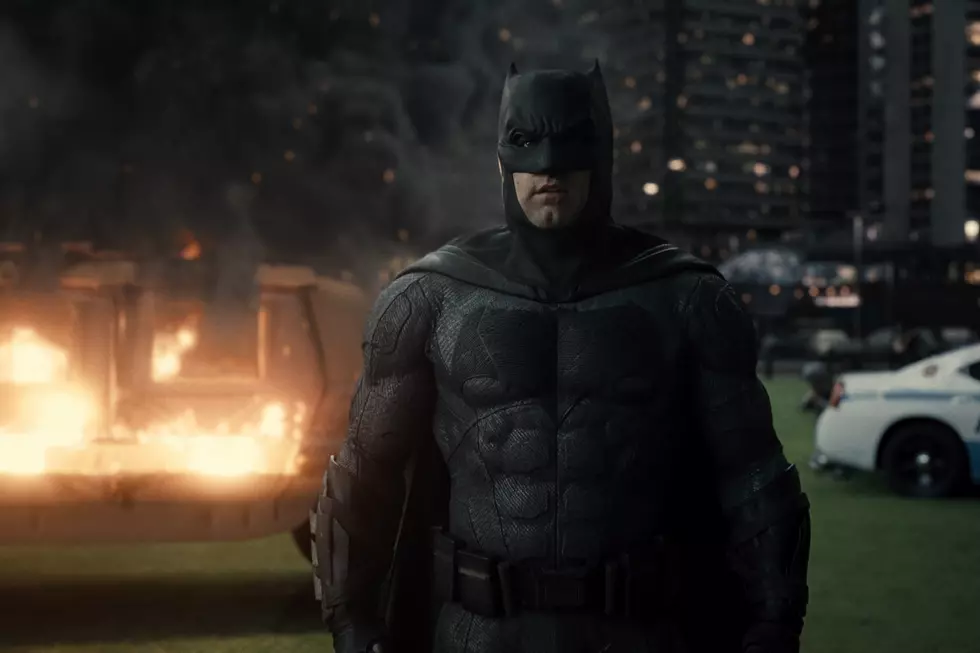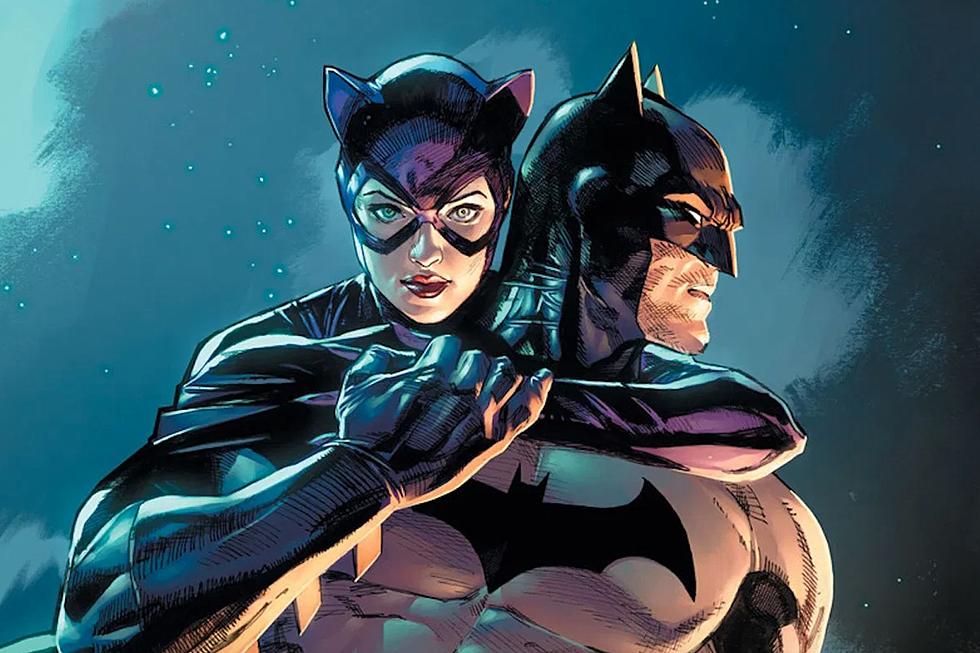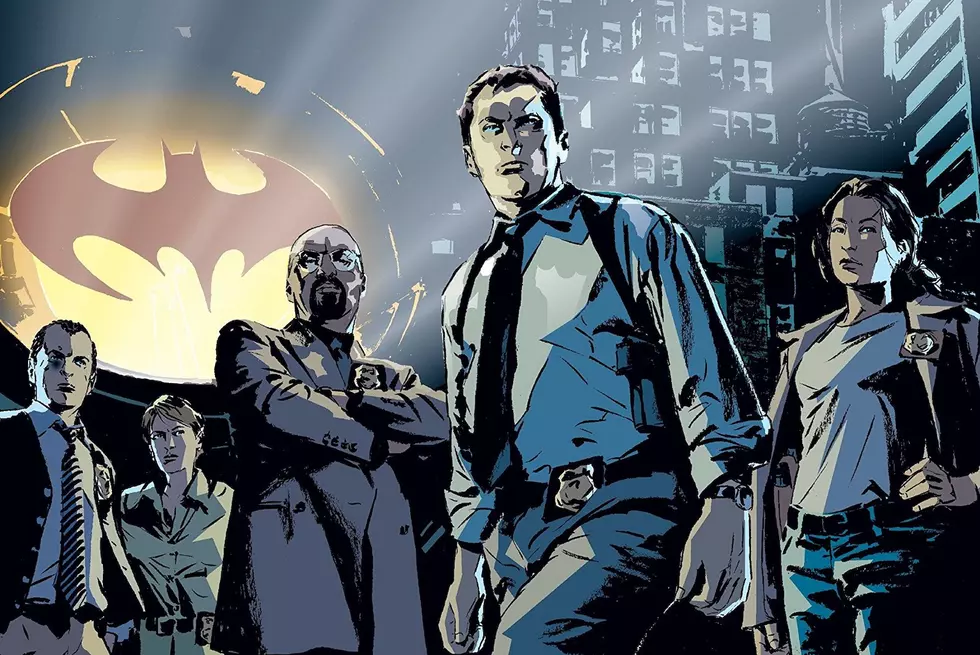
Diversity, History and Batman: Highlights From Michael Uslan’s Reddit AMA
Look in the credits on any Batman feature of the past 26 years, and you'll see one name on all of them: Michael Uslan. In addition to serving as a producer/executive producer on seven Batman films, Uslan was executive producer on the Swamp Thing movies, Catwoman, The Spirit and, believe it or not, Where in the World is Carmen San Diego? Uslan is also a comics writer, with Archie and DC credits including The Shadow under his belt, and a professor who teaches a class called The Comic Book in America.
On Thursday Uslan opened up for a Reddit AMA Thursday, answering a handful of questions using his wealth of knowledge about superheroes, Hollywood and comics history. Here are some of his most intriguing answers:
On the popularity of superheroes compared to comics sales:
I think there's a missing link. How can millions of people go to an Ant Man movie, yet the comic book not sell over 25,000 copies (that would equate to selling 500 copies per state in the US). By the way, this is not a real example, I'm just using Hank Pym as a hypothetical. How can San Diego and New York Comic Cons get 150,000 fanatical fans, yet a typical super-hero comic can't sell over 50,000 copies in a month? A link needs to be found to unite the movie, TV, animation and videogame fans with the comic books themselves. I would LOVE to hear all your ideas as to how best to accomplish this goal!
On his favorite Batman stories:
I love Scott Snyder's work. Anything he does on Batman is of keen interest to me. Of all time, my favorite Batman story is "Night of The Stalker" from Detective Comics back in the 1970's. Batman doesn't say one word, yet it is, to me, the most powerful Batman story ever written. Other favorites: Batman #1, "Night of The Reaper," the Steve Engelhart/Marshall Rogers run, especially "The Laughing Fish," "Robin Dies At Dawn," everything Denny O'Neil wrote and Neal Adams drew, especially the initial Ra's Al Ghul story arc.
On whether DC can emulate Marvel's movie success:
In my sole, fanboy/comic book historian opinion (not my Hollywood producer opinion), there is a huge seminal difference between the Marvel Universe and the DCU, which has a bearing on how they play out on the silver screen and the TV screen. The Marvel Universe was co-created by one writer who was also the sole editor. As a result, it was a single unified vision from the start, determining all the rules, the tone, the settings, what would be the future or what exists under the ocean or among the stars or via different dimensions. Having that consistency from inception is awesome!
At DC starting way back when, there were a number of different and very strong editors, each of whom had their kingdom of characters they personally controlled in terms of tone, characterization, settings, etc. So if you read Aquaman, you saw one version of Atlantis back then, but if you read Superman, Atlantis was a domed city of mermen and merwomen. For a kid like me in the 50's and 60's, that could be confusing unless you just read each on its own. Also, Batman might be written for an older comic book audience, while Teen Titans might be written for tweens. So I think it's a grand idea for the studios to be growing these universes both on TV and in the movies (as well as in videogames), different as they may be.
On what makes superhero movie franchises successful:
The best path to success for any comic book movie franchise is to find filmmakers who are passionate about a character, have an understanding of the character, have a vision for it on screen, and have the ability to execute that vision. Tim Burton, Chris Nolan and Zack Snyder each have had all of the above, although their cinematic interpretations may be as different as night and day. Luckily, Batman is open to many interpretations as the comic books have shown over these past 75 years.
On his favorite characters:
My favorite characters of all-time: Batman; The Spectre; Captain Marvel; The Spirit; The original Sandman; Captain America; The Shadow; Doc Savage; Sugar & Spike; Archie; Richie Rich; Little Max; Mr. Justice; The Hangman; the original Fly; Spider-Man; the original X-Men; The Hulk as portrayed in "The Incredible Hulk" #6; Dr. Strange; and THUNDER Agents.
On women in comics:
I think women are terribly under-represented today in the talent pool, whether we are talking about comic books or movies. Look at the brilliant work of Gail Simone. We NEED more of that. The history of comic books is that they were originally geared to pubescent boys and servicemen. Today, we all need to present the diverse world in which we live accurately and I think that applies also in terms of the physical representation of many females in the super-hero world.
I have felt that for too many years, American comic books turned their backs on females and that contributed to the huge rise in popularity of manga and anime through which American and European female readers, young and older, could find vibrant and powerful and smart female protagonists. The comic book industry is standing up to this responsibility and I think positive strides are taking place but we all need to push.
On comics' racial history:
Back in the 1930's-50's, African-Americans in comic books were often portrayed in a way that mirrored the biases and prejudices of American society. Characters were often in the "Steppin Fetchit" mold. Comics were not the only pop culture doing this, it seemed they all were: movies, minstrel shows, radio, etc. It really wasn't until the mid-1960's when things began to change... slowly. I look at Sgt. Rock's Jackie Johnson ("What Is The Color Of Your Blood?"), The Black Panther, The Falcon, Luke Cage, Black Lightning, John Stewart as being game-changers for the industry. I think the seminal game-changing moment came courtesy of Denny O'Neil in Green Lantern/Green Arrow #76 when GL is confronted by an older African American man demanding to know why the hero has done so much for the purple people of one planet and the orange people of another planet, while nothing for black people in America.
On whether he liked the Green Lantern movie:
The villain was a cloud of gas.
On changing superhero characters for movies:
I have fought against (unsuccessfully three or four times over the years) changes merely for the sake of change. I don't like the notion of ignoring decades of history just to create a character out of whole new cloth while using a brand name. I, for example, was an avid reader of Sir Arthur Conan Doyle. So to me Sherlock Holmes was very cerebral, not an action hero. That said, I had to acknowledge that action sells movies today.
I remember when Tim Burton had Jack Napier as the guy who would kill Bruce's parents. I was very concerned about this change and campaigned long and hard to make sure there was someone with him who, at least in my own mind, was Joe Chill. I also recall going to see Bob Kane and asking him about this change. Bob said that as far as he was concerned, if The Joker had been created back circa Detective Comics 27-32, he would have preferred to see it happen this way. That's when I accepted what was.
Yeah, but what would Bill Finger have wanted, Michael?
You can check out the full AMA here.
More From ComicsAlliance









